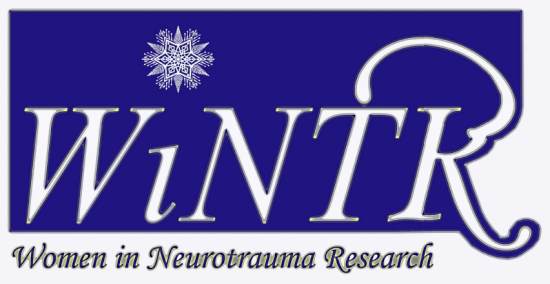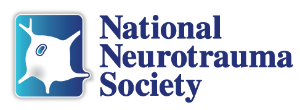Main Menu
Description & Objectives WiNTR Lunch
WINTR Lunch Session: Discussion of Careers in Science
Chair: Linda Noble, PhD
 Ticket Required - Hosted by
Ticket Required - Hosted by 







Panelists:
Jacqueline Bresnahan, PhD - University of California San Francisco
Diana Sama, PhD - University of Kentucky
Justin Beller, PhD - Bend Research
Courtney Robertson, MD - Johns Hopkins Medical Institute
Session Description
This luncheon session will offer 4 distinctive viewpoints on careers in science, ranging from junior to mid and senior investigators. Our panel of speakers will address decision points in seeking careers, ranging from industry to grant writing positions, balancing clinical responsibilities with research demands, and the importance of being a part of a collaborative team.
Learning Objectives
At the conclusion of this session, attendees will be able to
1. Identify alternative careers in science that extend beyond the traditional academic appointments.
2. Understand the unique features of alternative careers in science from the perspective of those scientists who are at early stages of their careers to those that have transitioned mid to later in their careers.
3. Understand the importance of being part of a collaborative research team.
4. Develop a foundational knowledge that will assist in future personal decisions about career trajectories.
ABOUT OUR PRESENTERS
Jacqueline C. Bresnahan, PhD
I received my PhD in Physiological Psychology at The Ohio State University and then did a post-doc in Neuroanatomy in the medical school there. I met my husband while in graduate school and stayed in Ohio so that we could both have positions. We joined forces early on and have been a research team for over 40 years. We had significant teaching and administrative responsibilities in addition to our research program. Around 10 years ago, we moved to UCSF where we are now almost totally focused on research. We are part of a couple collaborative teams, one focused on plasticity and regeneration in the primate spinal cord, and the other focused on early critical care for spinal cord injury, a translational effort. These team experiences, while not new to us as we were part of the original MASCIS team in the early 90’s, and worked with the SCI investigators at Ohio State to establish the SCI training program there, have been some of the most rewarding efforts of my career. I thought that it was important, when considering how to move forward in one’s career, to not miss the opportunity to be part of a team. One can be very productive by working as part of a team, and if the group is a good one, it can lead to life-long friendships and an important sense of community.
Diana Sama, PhD
I completed my graduate work in Gerontology at the University of Kentucky where my dissertation focused on the interactions between neuroinflammation and Ca2+ dysregulation in brain aging. I remained at the University of Kentucky for her post-doctoral work, but shifted my research focus to neurogenesis and glial proliferation after traumatic brain injury. During graduate school I secured a position on an NIH T32 institutional training grant, and during my post-doc I successfully obtained funding on an NIH F32 training grant. I also contributed to many grants and regulatory protocols within the lab during my post-doc. I found the increasing writing duties rewarding. When my science experiments turned into years of troubleshooting, I started to consider a career in science communication. After a brief freelance writing experience in healthcare marketing, I began a grant writing position at an educational cooperative (a non-profit organization). I find that many skills I learned in academia transfer well to alternative settings.
Justin A. Beller, PhD
I received my doctorate in Pharmacology and Toxicology from the University of California, Davis. My graduate research investigated the role astrocytes play in protecting neurons from excitotoxicity following brain injury and during disease. Specifically, my work focused on the pharmacological enhancement of astrocytic glutamate transporters. Following graduation, having focused strongly on a cell-centric approach to CNS pathology, I decided to join a laboratory, which would allow me to develop a different perspective on CNS pathology. Therefore, I joined a laboratory at the University of Kentucky’s Spinal Cord and Brain Injury Research Center that focused on the role the extracellular matrix plays in the regeneration of the injured spinal cord. In particular, I researched the role different intricacies of chondroitin sulfate proteoglycan structure have on neurite outgrowth and the regenerating spinal cord. In addition, work also revolved around protein-based therapies for degradation of these proteoglycans in the glial scar and the production of recombinant “designer proteoglycans”. Though I found that both my work conducted as a graduate student and a post-doctoral scholar interesting and impactful, sometime during my second year as a post-doc I made the decision that I would like to work further downstream on making therapeutics for people. At that point I had decided to start looking seriously at positions in the Pharmaceutical and Biotherapeutic industry. At the end of my third year at the University of Kentucky, I took a position as a Senior Scientist at Bend Research in beautiful Bend, OR. Thus far, the job has been extremely rewarding. From working on biotherapeutic cell line metabolomics, protein based nanoparticle therapies, and internal drug delivery platform technologies, the work has been fast-paced. Through this position I have been able to use my solid scientific foundation to tackle many different problems, while at the same time through collaboration with engineers and chemists, develop skills in many new techniques and disciplines.
Courtney Robertson, MD
I began preclinical research in the field of traumatic brain injury during my clinical fellowship in pediatric critical care at the University of Pittsburgh. My research focus was on neuroprotection in a rat model of TBI, and included translational studies of CSF biomarkers in pediatric patients with TBI. As a young clinician scientist, the large translational laboratory group, along with devoted mentoring was essential for providing a foundation for my research development. After fellowship, I took a faculty position in the Department of Pediatrics at the University of Maryland. In my early faculty years, despite a relatively heavy clinical workload, I was able to establish my own laboratory with a rodent model of pediatric TBI, thanks to excellent mentoring and divisional support. After three years, my research focus on mitochondrial dysfunction after pediatric TBI led to the receipt of a NIH K08 award. This K08 award allowed for significant protected time from my clinical duties, giving me the much-needed time in the lab to further establish my research career. Following my K08, due to staffing changes in the pediatric critical care faculty, I had a large increase in clinical demands, severely limiting my research productivity. I was fortunate to find a new faculty position across town at Johns Hopkins University in 2009. At Hopkins my position is in the Department of Anesthesiology and Critical Care Medicine, and I’m part of a larger faculty group. This has allowed improved flexibility in my clinical schedule, and has facilitated my research productivity. Once again, I am fortunate to be a part of a large, collaborative research team with PhD’s, MD’s, students, clinical residents/fellows, and post-doctoral fellows. As a clinician scientist, both clinical scheduling flexibility and large collaborative research teams have been essential to my research success.
At the conclusion of this session, attendees will be able to
1. Identify alternative careers in science that extend beyond the traditional academic appointments.
2. Understand the unique features of alternative careers in science from the perspective of those scientists who are at early stages of their careers to those that have transitioned mid to later in their careers.
3. Understand the importance of being part of a collaborative research team.
4. Develop a foundational knowledge that will assist in future personal decisions about career trajectories.
